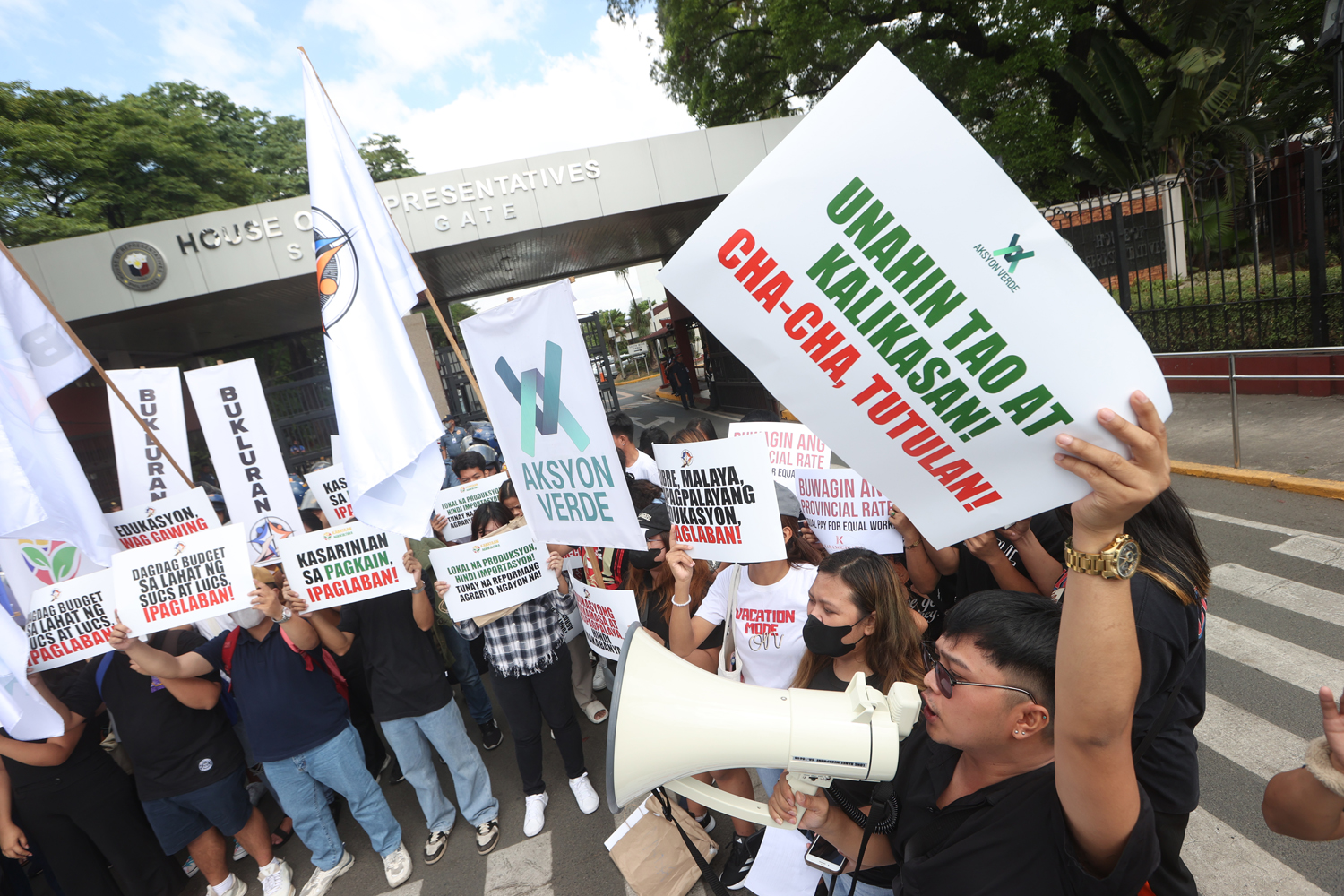House disputes survey on anti-Cha-cha majority

FIX PRIORITIES Students and other sectors on March 20 protest against the House of Representatives’ bill pushing Charter change. NIÑO JESUS ORBETA
MANILA, Philippines — The House of Representatives, which has been at the forefront of efforts to amend the 1987 Constitution, bristled at a recent Pulse Asia survey, which showed that three out of four Filipinos were opposed to Charter change (Cha-cha).
On Saturday, House Deputy Speaker David Suarez and Majority Floor Leader Manuel Dalipe questioned the survey’s “biased and leading questions,” which they said could have influenced its outcome.
READ: 52% of Filipinos for Cha-cha, House claims
READ: House meets pre-Holy Week deadline for Cha-cha bid
The survey—conducted March 6 to March 10 and released on Wednesday—showed that 72 percent of the respondents were aware of efforts to amend the Constitution, with 88 percent saying the Charter should not be touched.
Article continues after this advertisementOf that figure, 74 percent believed the Charter should “not be amended now nor any other time” while only 6 percent said it could be done under the current administration. The remaining 8 percent said they would like it done under the next administration.
Article continues after this advertisementThe results were released after the House approved on third and final reading Resolution of Both Houses No. 7 (RBH 7), which seeks to ease restrictions on foreign ownership in public utilities, educational institutions and the advertising industry.
Suarez questioned the “phrasing of the [survey] questions [which] seemed crafted to steer respondents toward a specific viewpoint on Charter amendments.”
These included, for example, questions about changing the current system into a federal government; term extension for national and local elective officials; changing the presidential system to a parliamentary system of government; and shifting from a bicameral to a unicameral legislature.
‘Smear campaign’
These matters “do not align with those currently under discussion in Congress,” Suarez said.
“The survey questions … [may] have inadvertently skewed responses and fostered opposition to [Charter change],” he said. “The wording of survey questions should accurately reflect the actual provisions being proposed for amendment.”
Suarez went on to say that the survey could be “part of a smear campaign” to undermine efforts to amend the Constitution.
READ: Villanueva: Pulse Asia survey shows no need to fast-track Cha-cha
No rush
Dalipe agreed, saying: “Why include questions that people don’t want and are not related to the ongoing process in Congress? Is this black propaganda?”
“Including unrelated questions in the survey only serves to confuse and mislead the public,” the Zamboanga City representative also said.
He said Filipinos would ultimately decide on the proposed amendments in a plebiscite and not through surveys.
But for RBH 7 to be put to a plebiscite, the Senate must first pass its own RBH 6, the template of the House measure.
The Senate, however, has maintained the position that there is no need to rush constitutional amendments.
The House has been adamant to see the amendments put to a plebiscite before Congress adjourns on May 25, to give enough lead time before the midterm elections next year.